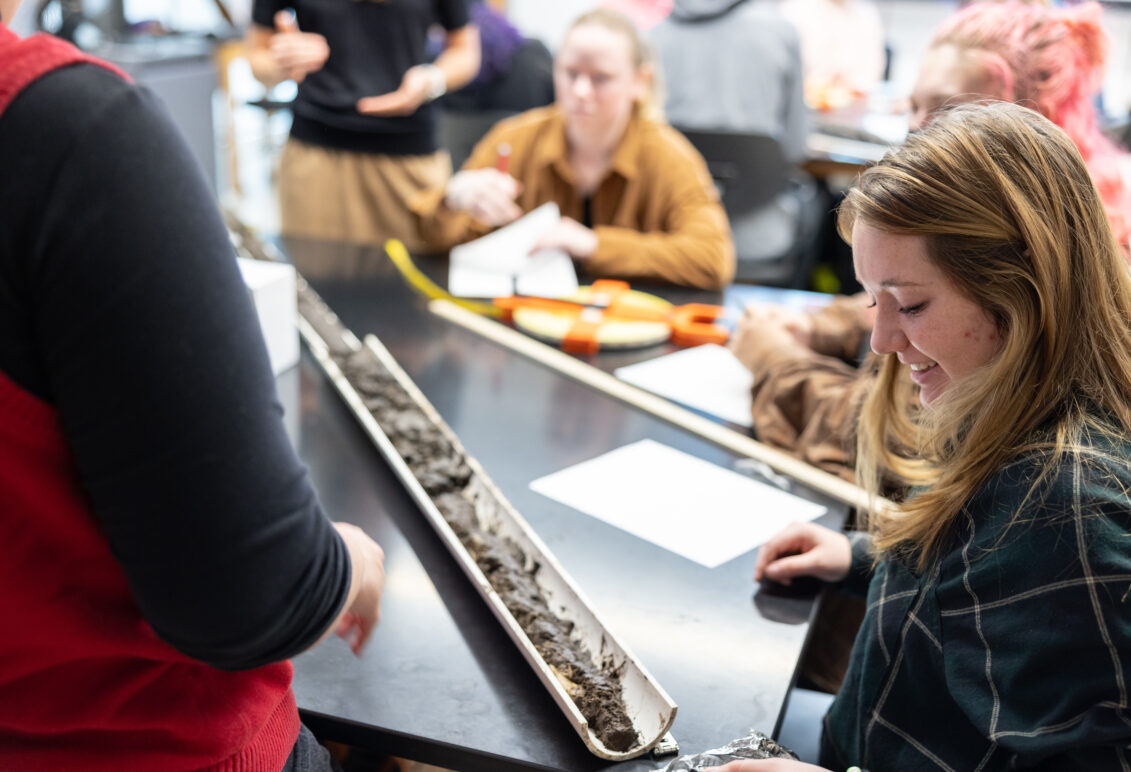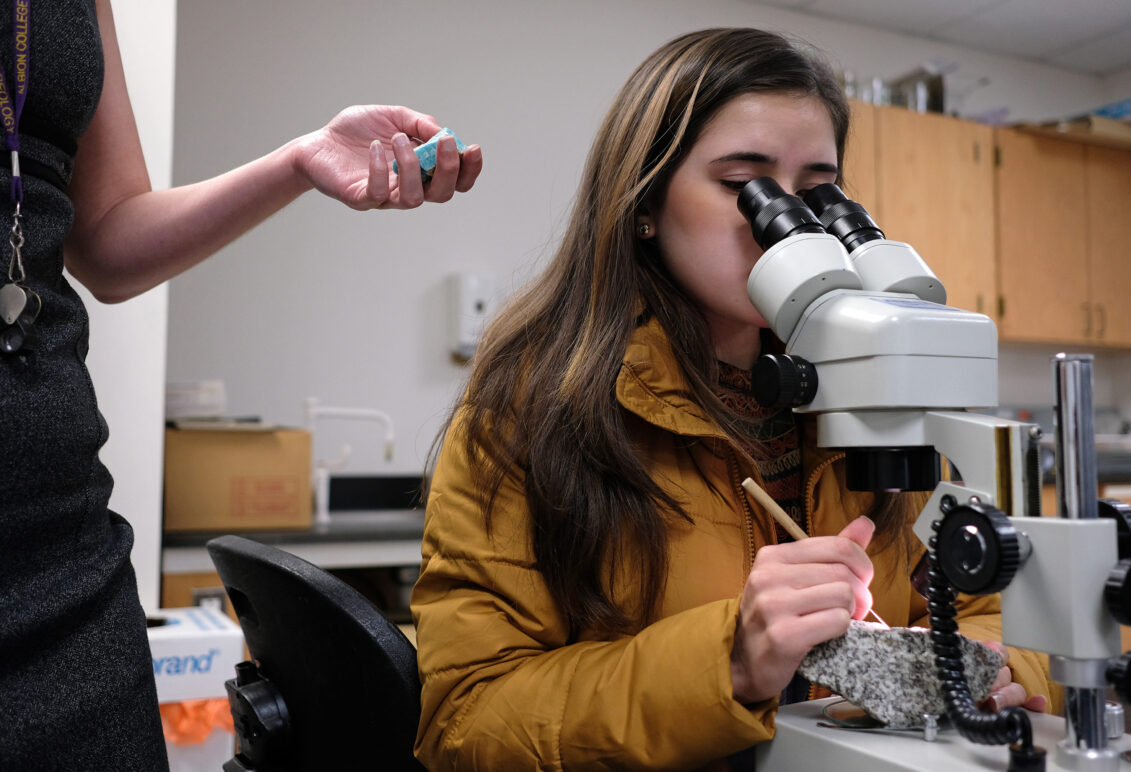Driven to understand – and protect – our planet?
Major in environmental geology at the University of Mary Washington and you’ll examine Earth and its environments through a problem-solving mindset. Combine coursework with practical research and internships, preparing yourself for an exciting career that could help curb the hazards that threaten our planet. UMW’s location near the Rappahannock River – between the Chesapeake Bay and the Shenandoah Valley – is a prime spot for fieldwork, and our proximity to D.C. and Richmond allows our majors to gain practical experience through internships. Whether you’re interested in graduate study or immediate employment in industry, environmental consulting, teaching, government or nonprofits, you’ll graduate ready for the next exciting stage in your geologic career.
Degree Awarded
Students majoring in environmental geology who complete all requirements earn the degree of Bachelor of Science (B.S.) in Environmental Science and Geology.
Areas of Study
UMW’s bachelor’s program in environmental geology includes courses in field methods, mineralogy, sedimentation and stratigraphy, structural geology, soil science, hydrogeology, and geographic information science (GIS). Choose additional coursework in watershed management, energy resources, climate change, and more. Independent research and internships are highly recommended.
Career Opportunities
Thanks to plentiful opportunities for independent study, research, and internships, and the state-of-the-art facilities available in UMW’s Jepson Science Center, students who earn their degrees in environmental geology from UMW are poised to find work in environmental consulting, government, teaching, and several other fields. Many go on to graduate study at highly competitive universities.
Internships
Our students land internships with private industry, government agencies, and NGOs. Recent UMW geology students have held internships with the City of Fredericksburg, Army Corps of Engineers, National Resources Conservation Services, Virginia Game and Inland Fisheries, Friends of the Rappahannock, and the Chesapeake Climate Action Network. More information on internships can be found through the Department of Earth and Environmental Sciences, or through Academic and Career Services.
Students with a 3.00 overall GPA and a 3.25 average in geology courses may pursue Honors in Geology or Environmental Geology by completing an independent research project and writing and defending a thesis.
UMW’s environmental geology major requires 43 credits, including two required chemistry courses and six required geology courses, with the remainder of the required credits in geology, geography, or environmental science. Environmental geology majors also are encouraged to do independent study and research during their senior year.
A complete list of available scholarships is provided by UMW’s Office of Financial Aid.



